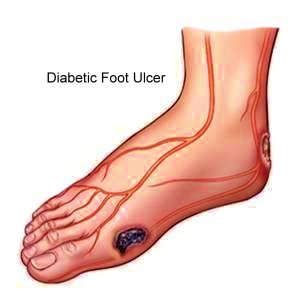Caffeine: What You Don't Know Can Kill You
 | | Yes, those are caffeinated jelly beans, and yes, they are real |
A few months ago, I significantly reduced my caffeine intake. I didn't quit it altogether--I still have the occasional diet soda or tea--but I did make it a point to end my dependance on the stuff. It was not an easy task; it was slightly easier than quitting smoking, but not by much. I did it because I learned some disturbing facts about caffeine. In my case, I learned some things about caffeine and diabetes that surprised the heck out of me, but I think even non-diabetics should be privvy to some facts about this seemingly obligatory drug found in coffee, tea, chocolate, headache medicine, and several places you probably don't expect.
There are plenty of double-standards out there when it comes to drugs. For example, you can get rat poison off the shelf, but you need a prescription for regular strength Sudafed. But of all the drugs out there that is frequently abused by the public, the biggest drug that manages to sneak through scot-free despite a laundry list of negative side effects has got to be caffeine. Yeah, alcohol's pretty bad too, but it doesn't seem to have the PR that caffeine does. The point of this essay is not to try to convince you that caffeine should be illegal or regulated--God knows that's the last point I'd want to make--but to tell you some things you might not know, so that the next time you (knowingly) consume caffeine, it is a more informed decision.
First of all, you have to understand how caffeine works, or at least how it keeps you wired. Caffeine does a whole host of different things to your body, but the primary mechanism of importance is its relationship to adenosine, a neurotransmitter and biochemical involved in sleep processes. Adenosine is responsible for promoting sleep and inhibiting arousal, and is naturally produced by your body when you've been active for too long. Caffeine binds to receptor sites for adenosine, in effect lowering its effectiveness and thus preventing you from getting tired when you otherwise would.
 | | Hibernation is overrated |
This is, in and of itself, not a big deal. Unfortunately, one of the things your body does to compensate for caffeine is produce excessive amounts of adenosine. Once the caffeine goes away, this extra adenosine floods into the now vacant receptor sites. This causes a "crash" in the form of sudden exhaustion, headaches, irritability, depression, and/or--with particularly vexing irony--insomnia.
In a startlingly quick amount of time, addiction and tolerance form. Tolerance is deceptive, though, because your body is still reacting to the drug even though you feel fewer effects. What actually happens is you develop more receptor sites for adenosine, so you stop feeling the effects of caffeine as a stimulant. However, once the surplus of adenosine fills the void of lost caffeine, you feel much more withdrawal because you are responding to more adenosine than is natural for the human body. While not a permanent state of affairs, it takes several caffeine-free days for adenosine receptor levels to return to normal.
Adenosine is also responsible for helping regulate blood pressure, so this up and down flood of adenosine caused by caffeine can cause your blood pressure to fluctuate rapidly (that's why withdrawal symptoms almost always include a persistant headache). Even mild caffeine addicts maintain a higher blood pressure than non-addicts, and in heavy addicts, the differences can be dramatic.
 | | Don't do a Google image search for this sort of thing, ever |
But here's where it gets bad, especially for diabetics. One of caffeine's metabolites, paraxanthine, increases lipolysis and increases your bloodstream's fatty acid and glucose levels. It also increases the production of glucogon. Glucogon is like the opposite of insulin, and reduces the effectiveness of insulin. Caffeine addicts, therefore, have unstable blood glucose homeostasis, which is a fancy way of saying they are less able to control their blood sugar. This is true even in non-diabetics, although it is obviously a much bigger problem for people with diabetes. Research indicates that caffeine may even be a factor in developing type 2 diabetes (mixing it with sugary sodas probably makes it much worse). The bottom line is this: caffeine makes it harder to control your blood sugar.
In case you don't know what the big deal is, look into the health complications that come from difficult-to-control blood sugar levels in diabetics. It's not pretty. And even if you're not diabetic, know that even slightly unstable homeostasis can lead to mild weight gain.
Additionally, caffeine increases fat storage. Simultaneously, your overall metabolism is sped up, meaning that you take in more fat than you otherwise would. Paradoxically, caffeine inhibits your metabolism of various vitamins and minerals, so while your body is busy storing away those globs of fat, it's completely ignoring the Vitamin-C and antioxidants. Worse yet, caffeine is a mild diuretic (though addicts eventually develop a true tolerance to this), making you dehydrated on top of all of it. In the end, all of these factors combine to make you fatter, and they do it with mind-boggling efficiency.
 | | Mind-boggling efficiency: the Death Starbucks |
For the average Joe Addict, caffeine is a problem. It makes you fatter, messes with your blood sugar and blood pressure, affects your mood in negative ways, and makes it hard for you to quit. However, all of this pales to the problems faced by heavy addicts, the people who drink over six or seven cups of coffee, chug whole 6-packs of Mountain Dew, or down multiple energy drinks a day.
The most immediate risk is that of heart attack and stroke. No matter how otherwise healthy you are, if you are a heavy caffeine addict, your blood vessels have been strained and weakened over time. One day, this could catch up to you very suddenly, and it could easily kill you. Other potential problems associated with heavy caffeine addiction are gastroesophageal reflux disease (persistant heartburn), tinnitus (constant ringing in your ear), caffeine-induced sleep or anxiety disorder, repiratory alkalosis (high blood pH), hyperreflexia (twitching), recurring migraines, heart palpitations, peptic ulcers, erosive esophagitis, anger management issues, paranoia, forgetfulness, and impotence.
It's called caffeinism, and its an actual condition that often goes unnoticed. Once you have become addicted to large amounts of caffeine over an extended period of time, your body and mind have been significantly altered. However, since the progression of caffeinism is gradual, few people attribute the changes to caffeine, especially since the drug is so commonplace and socially acceptable.
 | | Could caffeine be the real culprit? |
Your central nervous system will eventually stop trying to compensate for the caffeine but will instead start to depend on it. However, no matter how regularly you intake caffeine, you are still going to have highs and lows of the drug in your system, and they will actually be more extreme than they are in the more casual addict. These fluctuations in metabolism, blood pressure, blood sugar, blood pH, and mood all combine to produce an unhealthy and irritable human being.
We all probably know at least one person with caffeinism, but good luck convincing that person that their assholesque behavior and recurring medical issues have anything to do with caffeine. Like with any other addictive drug, an addict rationalizes the side effects so that they don't have to face withdrawal.
But I must disclaim that this has all been one side of the story. There is also compelling evidence that caffeine reduces the risks of many types of cancer, most notably breast cancer. Additionally, there is no evidence to suggest that moderate caffeine consumption can do any real harm. Just be careful, because caffeine is highly addictive, and once you go down the rabbit hole, it's pretty hard to climb back out.
-e. magill 3/10/2010
|
|